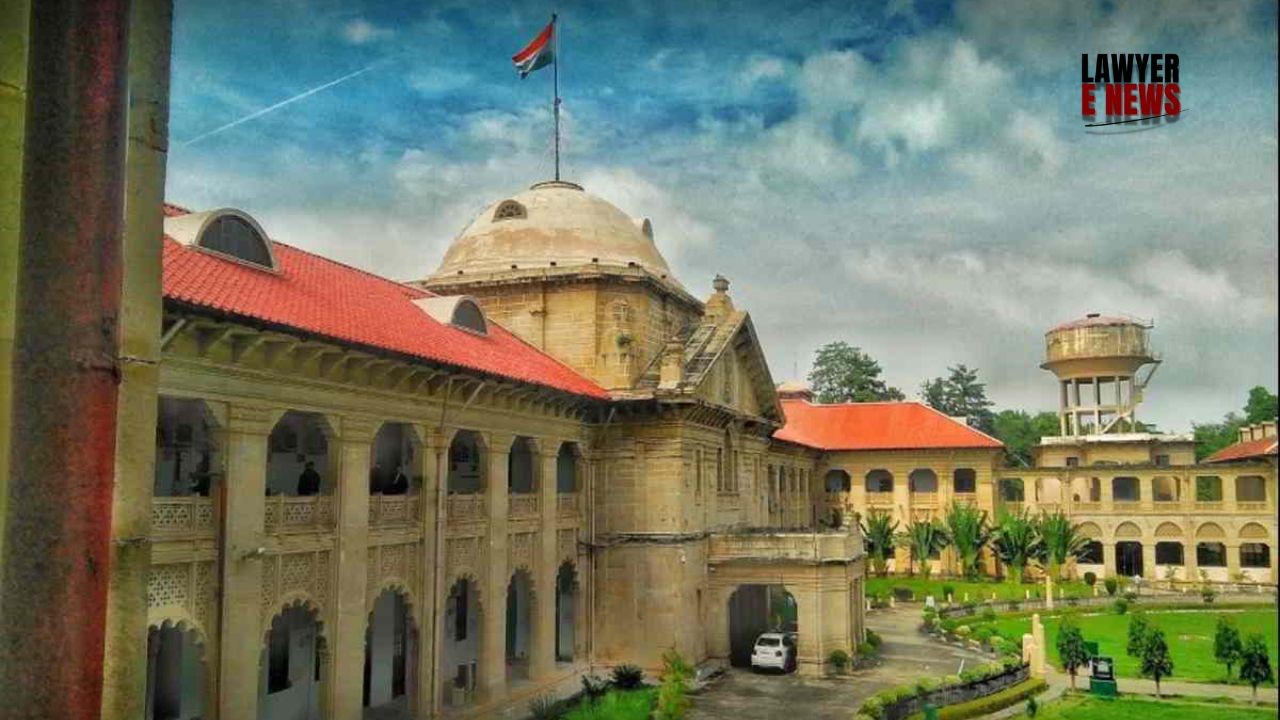-
by Admin
15 February 2026 5:35 AM



Allahabad High Court acquitted all appellants convicted of murder in Jhande Yadav @ Jhundu @ Shiv Kumar and Others v. State of Uttar Pradesh. The appellants, initially sentenced to life imprisonment under Sections 147, 148, 149, and 302 of the Indian Penal Code (IPC), were acquitted due to the court's findings that the sole eyewitness's testimony was unreliable, and the confessions made by the accused under Section 164 of the Code of Criminal Procedure (CrPC) were procedurally flawed.
The case arose from the alleged murder of Azad Yadav on the night of July 9, 2001, at his family's tube well. His father, Babu Yadav (P.W. 1), claimed to have witnessed the crime, which was reportedly motivated by a prior altercation involving the victim's brother over a financial dispute. The First Information Report (FIR) was lodged the next morning against seven accused, with others added during the investigation.
The trial court convicted the accused based on the sole testimony of P.W. 1 and confessional statements recorded under Section 164 CrPC. The accused were sentenced to life imprisonment and fined. They appealed to the High Court, challenging the credibility of the witness testimony and the confessions.
Credibility of Sole Eyewitness (P.W. 1): The appellants argued that the testimony of P.W. 1, the deceased's father, was inconsistent. The court agreed, noting discrepancies in his account, such as conflicting statements about who accompanied him to the crime scene and his failure to intervene in the attack on his son. The absence of corroborating witnesses, especially Raj Bahadur (who was said to have accompanied P.W. 1), further weakened the prosecution's case. The court found the sole eyewitness's testimony unreliable, stating, "The law with regards to appreciation of evidence of a solitary witness requires such testimony to be wholly reliable, which is not the case here" [Paras 43, 47].
Non-Compliance with Section 164 CrPC: The confessions of three accused were recorded under Section 164 CrPC but were deemed invalid by the court. It observed that the magistrate had failed to provide proper warnings about the consequences of confession and did not allow the accused sufficient time to reflect. The court ruled that these confessions were procedurally flawed, citing the lack of compliance with legal safeguards under Section 164 CrPC. The judgment stressed: "The confessional statements recorded in a mechanical manner cannot be given credence" [Paras 46, 55-61].
Delay in Lodging the FIR: Although the FIR was lodged approximately eight hours after the incident, the court found the delay reasonable given the fear faced by the informant and the distance to the police station. However, the court noted that the delay, coupled with inconsistencies in P.W. 1's testimony, cast doubt on the prosecution's case [Paras 36(v), 39].
The testimony of P.W. 1 contained contradictions, including whether he went to the scene with his brother Raj Bahadur or his son Virendra. The non-production of Raj Bahadur as a witness was considered a serious omission, and the court inferred that his testimony might have contradicted P.W. 1’s version [Paras 45, 47].
The prosecution failed to provide sufficient corroborative evidence, as several witnesses either turned hostile or were not produced during the trial [Paras 42-43].
The confessional statements under Section 164 CrPC were dismissed as invalid due to procedural lapses, including the failure to inform the accused adequately about their rights, a key safeguard to ensure voluntariness [Paras 46, 55-61].
Given these findings, the court ruled that the prosecution had not proven the guilt of the accused beyond a reasonable doubt. It acquitted all appellants, setting aside the convictions and sentences handed down by the trial court.
The Allahabad High Court's decision underscores the importance of strict adherence to procedural safeguards, particularly under Section 164 CrPC, and the need for reliable and consistent witness testimony in criminal cases. The acquittal in this case highlights the judiciary's commitment to ensuring that convictions are based on credible evidence and due process.
Date of Decision: September 20, 2024
Jhande Yadav @ Jhundu @ Shiv Kumar and Others v. State of Uttar Pradesh
